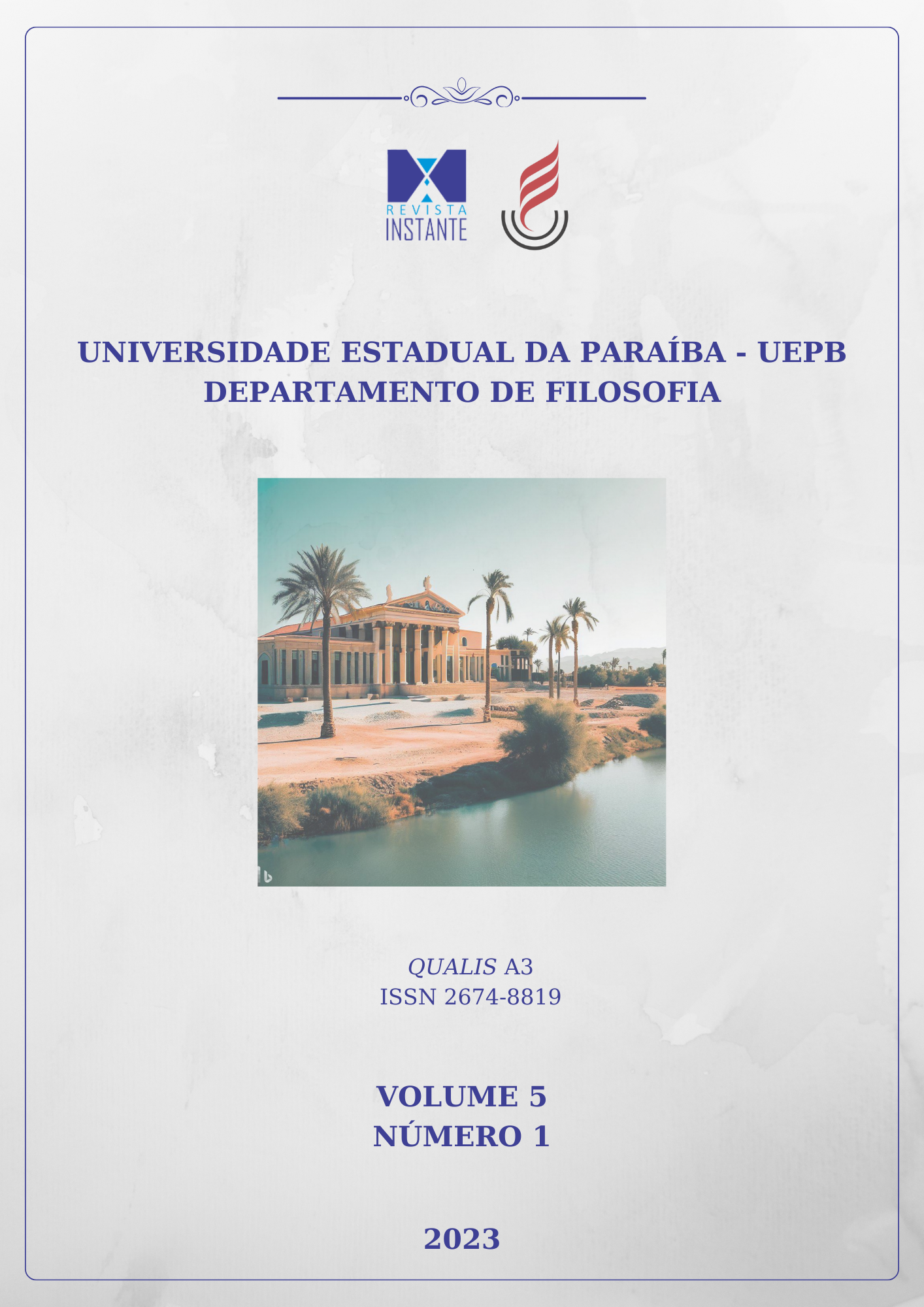THE WORLD AS WILLINGNESS AND REPRESENTATION
the Schopenhauerian individual and his ethical relationship with the universe
Keywords:
Schopenhauer. Will. World. Representation. Compassion.Abstract
Our reflection developed here aims to analyse the concepts of representation and will in Arthur Schopenhauer (1788-1860), based on the work "The World as Will and as Representation", volumes I and II of the philosopher in question and the contribution of other thinkers about this work. Schopenhauer works on the relation between subject - his interpretation and his interference - and object in the world as a discourse of that same subject.
With this in mind, we analyse how the philosopher's theory shows itself in a practical way in the everyday life of the individual. We found that the will is not a mere faculty of the individual, but an active and dominant instance in every being, so that it is considered by the thinker as the essence of the world and cause of suffering and dissatisfaction, leaving the individual insatiable; this same world is pure representation of the thinking subject. Schopenhauer was greatly influenced by Kantian philosophy, among others, and theorized about the "thing in itself" (noumenon) and the "phenomenon" (apparition) in a deep and comprehensive way. We emphasize, however, the importance of the body in the construction of this philosophizing, without which the representation and the will would not be materialized. Moreover, the exposure of Schopenhauerian ethics is also visited in this reflection, because it occupies a prominent space in the confrontation against the selfishness present in all eras. Here is an immanent metaphysics, compassion, the true foundation of morality.
References
ABBAGNANO, Nicola. Dicionário de filosofia. São Paulo: Martins Fontes, 2012.
BARBOSA, Jair. Schopenhauer: a decifração do enigma do mundo. São Paulo: Paulus, 2015. Coleção Como Ler Filosofia.
CUNHA, Antônio Geraldo da. Dicionário etimológico da língua portuguesa. 4. ed. rev. pela nova ortografia. Rio de Janeiro: Lexikon, 2013.
DEBONA, Vilmar. Schopenhauer. São Paulo: Ideias e Letras, 2019.
FREUD, Sigmund. História de uma neurose infantil: (“o homem dos lobos”): além do princípio do prazer e outros textos (1917-1920). Tradução de Paulo César de Souza. São Paulo: Companhia das Letras, 2010.
GOLDIM, José Roberto. Compaixão, simpatia e empatia. 2006. Disponível em: https://www.ufrgs.br/bioetica/compaix.htm. Acesso em: 7 mar. 2023.
KANT. Immanuel. Crítica da razão pura. 2. ed. Petrópolis: Vozes, 2013. (Coleção pensamento Humano).
LAPLANCHE, Jean. Vocabulário de psicanálise. 4. ed. São Paulo: Martins Fontes, 2001.
PASCAL, Blaise. Pensamentos: vida e obras. São Paulo: Nova Cultural, 2005.
ROGER, Alain. Vocabulário de Schopenhauer. São Paulo: Martins Fontes, 2013. (Coleção Vocabulário do Filósofos).
SCHOPENHAUER, Arthur. As dores do mundo: o amor, a morte, a arte, a moral, a religião, a política, o homem e a sociedade. Tradução de José Souza de Oliveira. São Paulo: EDIPRO, 2014.
SCHOPENHAUER, Arthur. Metafísica do belo. Tradução de Jair Barbosa. São Paulo: Unesp, 2003.
SCHOPENHAUER, Arthur. O Mundo como vontade e representação. Tomo I. Tradução, apresentação, notas e índices de Jair Barbosa. São Paulo: Unesp, 2015.
SCHOPENHAUER, Arthur. O Mundo como vontade e representação. Tomo II. Tradução, apresentação, notas e índices de Jair Barbosa. São Paulo: Unesp, 2015.
SCHOPENHAUER, Arthur. Sobre a quadrúplice raiz do princípio de razão suficiente. Tradução de Oswaldo Giacoia Junior e Gabriel Valladão Silva. Campinas: Unicamp, 2020.
SCHOPENHAUER, Arthur. Sobre a liberdade da vontade. Tradução de Lucas Lazarini Valente e Eli Vagner Francisco Rodrigues. São Paulo: Unesp, 2021.
SIMMEL, Georg. Schopenhauer e Nietzsche. Tradução de César Benjamin. Rio de Janeiro: Contraponto, 2011.
SPINOZA, Benedictus de. Ética. 3. ed. Tradução de Tomaz Tadeu. Belo Horizonte: Autêntica, 2013.










